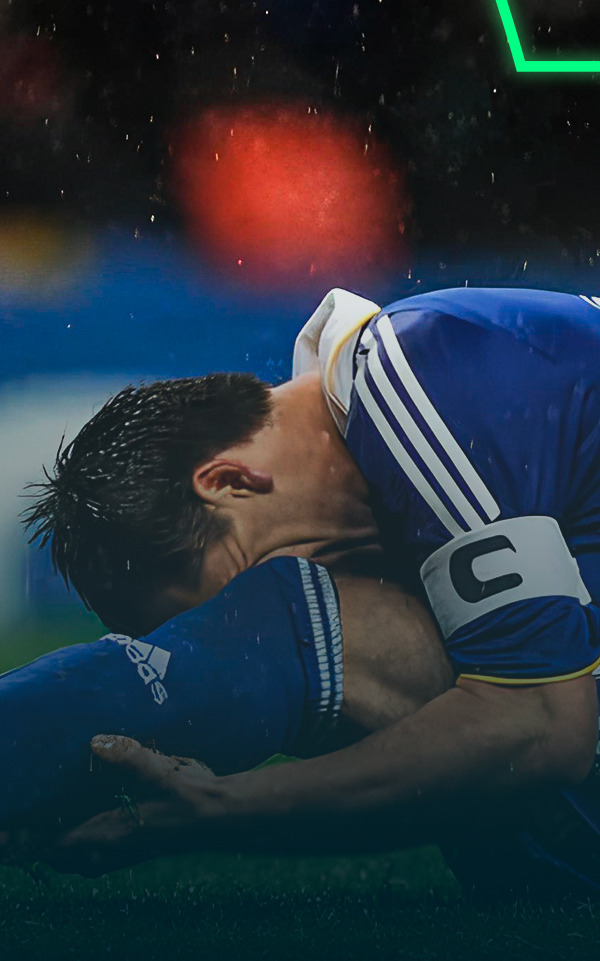Mental Health in Football: Challenges, Symptoms and Support

Mental Health in Football: Challenges, Symptoms and Support
October 10th, World Mental Health Day
Mental health issues in professional football have reached concerning levels. According to a FIFPro study, around 38% of active players have experienced symptoms of depression, highlighting the urgent need for awareness and support in this area. A professional footballer's career is lived under high pressure, constantly subject to public and media scrutiny, making players particularly vulnerable to mental health problems. Unfortunately, these issues often do not receive the same attention or importance as physical injuries.
Why are Footballers a vulnerable group?
Professional footballers face unique challenges throughout their careers that make them more susceptible to emotional and psychological difficulties. The pressure to perform, the expectations of fans, and managing a short and unpredictable career can create significant stress. Many players experience feelings of isolation, especially when adapting to new environments or dealing with changes such as a new coaching team or a transfer to another club.
Moreover, the end of a career, which can come early or later in life for various reasons, can lead to feelings of frustration, loss of identity, and even anger, as players struggle to adjust to life after football.
Common scenarios affecting mental health
- Change and Anxiety
Football is a dynamic sport, and team, coach, or club changes can cause anxiety. Players may feel insecure about their place in the team or fear failure. The pressure to deliver results can lead to: - Fatigue and demotivation;
- Feelings of fear or worry;
- Loss of appetite, insomnia;
- Panic attacks or anxiety disorders.
- Contracts
Constant club changes and short-term contracts can also be a significant source of stress. Negotiating contracts, relocating with family, or facing competition from younger players can create intense pressure. This may manifest as: - Panic attacks;
- Physical symptoms like heart conditions or migraines;
- Prolonged anxiety and depression.
- Performance Pressure
Players often bear the weight of maintaining high performance, with every poor game heavily scrutinized by fans and the media. The constant fear of failure can be crippling, affecting not only the game but overall well-being. Symptoms may include: - Panic and fear of failure;
- Decreased performance;
- Mood swings and constant worry.
- Retirement and Loss of Identity
For many players, transitioning from life as an athlete to retirement can be a turbulent phase. Many feel a deep sense of loss, as their identity has always been tied to their career. This can lead to destructive behaviors, such as: - Substance abuse or addictions;
- Relationship problems;
- Low self-esteem and depression.
How to recognize mental health symptoms in players
It is crucial for players, teams, and the broader football community to recognize signs of mental health problems. These can include:
- Persistent fatigue, lack of motivation;
- Difficulty sleeping or concentrating;
- Withdrawing from friends and family;
- Physical symptoms such as headaches or digestive issues;
- Harmful behaviors like substance abuse.
Addressing mental health in Football
Raising awareness and proactively managing mental health is as important as treating physical injuries. FIFPro has launched a Mental Health Pilot Project to develop resources and processes to support mental well-being in football. National federations and players' unions like the PFA in the UK, the Players' Union in Portugal, or the Spanish Footballers' Association in Spain, among others, are working to offer mental health services tailored to players' needs. The goals are to:
- Raise awareness: Educating players, coaches, and staff about mental health can help normalize seeking help and reduce stigma.
- Provide support systems: Accessible resources such as helplines and therapy should be readily available.
- Encourage early intervention: The earlier mental health issues are identified and addressed, the better the outcomes.
Support Channels
Footballers, whether active or retired, are not alone in facing these challenges. Several organizations offer confidential support. If you need help, or know someone who does, contact your national Football Federation or Players' Union. Alternatively, you can reach out to FIFPro.
Mental health is an urgent issue in football, and addressing it requires a joint effort from players, clubs, and organizations. If you are, or know of, a player struggling with anxiety, stress, or the emotional impact of retirement, seeking help is the first step toward a healthier and more balanced life.
News
Historic: Women's football clubs surpass €100 Million in revenue
For the first time ever, the combined revenue of top women’s football clubs in key markets has exceeded ...
How to succeed in the Sports Industry? Four tips from Rafael Nadal
Rafael Nadal is renowned for his excellence, determination, and relentless pursuit of victory. With 22 Grand Slam ...
Al-Nassr signs Esports player for record-breaking fee
João Afonso, world champion in FIFA and EA Sports FC, known as "Jafonso," has made history with the most ...
Is Netflix prepared to stream major sporting events? Insights from the Jake Paul vs. Mike Tyson fight
The live broadcast of the Jake Paul vs. Mike Tyson boxing match on Netflix marked a significant step for the platform, ...
European Leagues and FIFPro vs. FIFA: Lawyer Gonçalo Almeida explains the complaint to the European Commission
The European Leagues, chaired by Pedro Proença, along with FIFPro, has filed a complaint with the European ...
